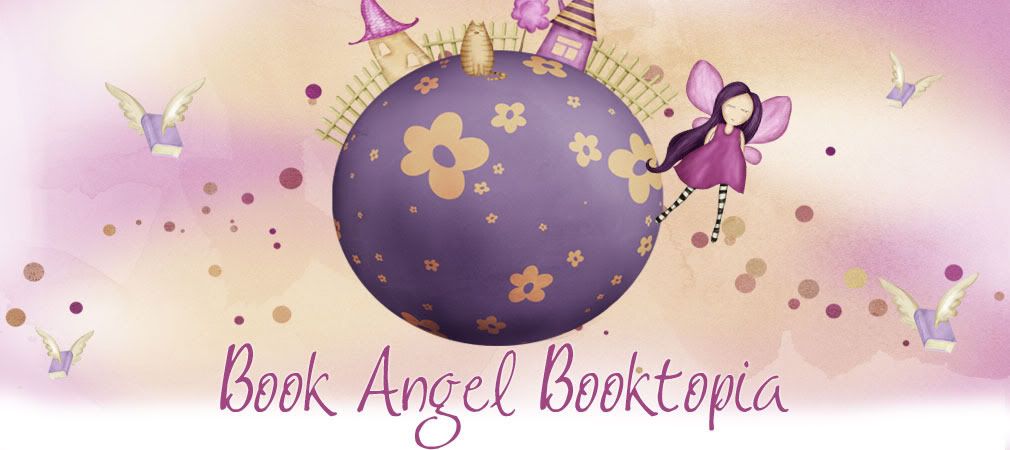Two young boys, an old tramp, a beautiful teenage dancer, and the girl's baby-ragtag survivors of a sudden war-form a fragile family, hiding out in the ruins of an amusement park. As they scavenge for food, diapers, and baby formula, they must stay out of sight of vicious gangs and lawless solders. At first they rely on Billy, the only adult in the group. But as civil life deteriorates, Billy starts to fall apart. Skip, who is barely into his teens, must take over and lead them on a search for sanctuary.
Blog 30 April 2011
http://www.asamumbooktopia.com/Libraries
Dear Book Angel,
Thank you for your invitation to write a guest blog. I've decided to write it in the format of a letter, albeit one you may share with your followers. This way I hope to express my feelings more personally, about the topic you've chosen for me. I hope you'll read this letter as though it were from a friend, a concerned ally or an associate in the business of bringing books to a wider audience.
I was dismayed to hear of the situation in the UK regarding funding cuts and closure of public libraries. It made me think for a moment of an Australian television series titled 'The Librarians' - a comic drama about the lengths to which a librarian will go to keep her library from closure. Selling guided tours, providing morning teas and becoming an agency for a commercial video store might be funny to watch on television, but not so humorous in reality. Could these be the sorts of things our public libraries will have to resort to in future to keep their doors open and stock their shelves?
In Australia the government is funding the development of massive new secondary schools to be populated by students trawled from smaller, soon-to-be-redundant,schools. Big is better we are told. There is money to be had for state-of-the-art buildings, up-to-the-minute technology, sporting facilities and so on. But I was shocked to learn from teacher friends and associates that libraries are not being given priority in the design of these new buildings. The space allocated must often be shared – in one case as an annexe to the canteen to double as an indoor eating space during lunch hour! Thankfully, a more suitable arrangement was negotiated. But even sadder than these sorts of compromises, many schools no longer have dedicated librarians.
If the number of public libraries (including school libraries) decline, where will the disadvantaged get their fix of books? Where can readers gather in their lunch breaks, after school or work or on weekends? What will happen to those no longer able to find refuge, delight, reassurance, inspiration, courage and respite in borrowed books?
In a series of novels I've written for younger readers, the Silk family choose not to have a television or to be connected to the internet. For them, real books and reading, both alone and to one another, are an integral way of life. We are not all so fortunate as this. In A Small Free Kiss in the Dark, Skip, the homeless hero of the book discovers a whole new world in a public library. Things he'd never experienced in his life as a foster child, as a runaway. Things that give him hope for a better future, that make him determined to succeed.
Of course these examples are fiction, but here is true instance of how libraries and librarians play an essential role in nourishing community. Last year I visited an inner-city government school with a high population of migrants. I went because I'd read a newspaper article about a young teacher from that school who had single-handedly started a movement to get books for her students, most of whom came from homes where English was not spoken. The teacher explained that she asked her students to bring their favourite book from home. To her dismay, most of them had no book to bring. One of the few, who came with anything, brought a sample chapter of a book that had been taped to a cereal packet. When word of this sad fact was made public by the teacher, books came from everywhere; book shops, other schools, authors, but mostly, just ordinary, everyday, concerned people. The joyful outcome was that these children now read to their parents, teach them English, from these most treasured possessions...books.
Those of you who have read A Small Free Kiss in the Dark might have guessed how much I love libraries. The one depicted in the book is actually a real one in Melbourne, the capital city of the state of Victoria where I live. When I was a child, there wasn't much money to spare and books were usually given as gifts at Christmas and for birthdays. But I still had access to books through the public library system. I left school at 15, but credit my ability to write to my love of reading and being read to. That was how I found out about beginnings, middles and endings, similes and metaphors. That was how I learnt the rhythm of words, the poetry, and the music of them.
I'm lucky now, I can buy books whenever I want to, yet I still think of them as gifts. But sometimes I believe a book can be more of a gift when it isn't owned. If it's taken from the shelves of a public library by someone who owns no books, it is indeed a precious gift.
You and I, Book Angel, and our families live in privilege and plenty. Yet we share the same beautiful planet with people who have little or no access to books. This is a tragedy. Politicians purport to understand poverty, but I wonder if they understand that the soul must be fed as well as the body. Perhaps it is up to us, you and I and our community of book-lovers, to do what the young teacher at North Carlton in Melbourne did - cause a public outcry to effect change. I wish you well in your quest to bring books to the world.
With kind regards
Glenda Millard.
I am so in awe of this guest post. Beautifully written and truly unique, there was just no introduction I could make. A huge thank you to Glenda for writing it.
















































